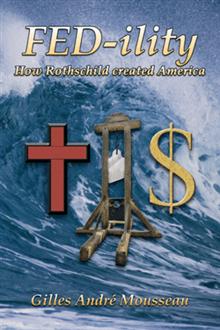Once it was deemed the right time to invade Europe, the Allies landed with Zorro leading them, and the war was over in a matter of months. There would never again be a world war, for HR had already put the final touches on its financial control of the entire world.
First, the market crash of 1929 had been a diabolical way of replacing the pound with the dollar as we’ve seen in an earlier blog. Thereafter, there was nothing to stop the US Dollar from becoming the world reserve currency. The world changed forever not at the famous Yalta Conference in 1945, but at Bretton Woods, a year earlier. It seems that HR had things well in hand from the beginning. With the world in chaos, in 1944, at the Bretton Woods conference, the Federal Reserve Board had no difficulty in getting most of the major countries to tie their currency to the US Dollar, thus making the latter the first official world currency of reference. Later, in 1971, when the gold standard was dropped, the dollar became a legitimate world fiat reserve currency. HR had achieved the ultimate in financial wizardry.
The two world wars were definitely about democracy, if we accept democracy as meaning control of currency and credit by private bankers, as explained in a previous blog. One should never forget that the Bank of England created in 1694, the Bank of North America created in 1781, and the FED created in 1913 were and are all made up of private bankers. HR, in the City, controls all the currencies of the world with the use of the US Dollar that’s managed by the FED, its visible arm.
